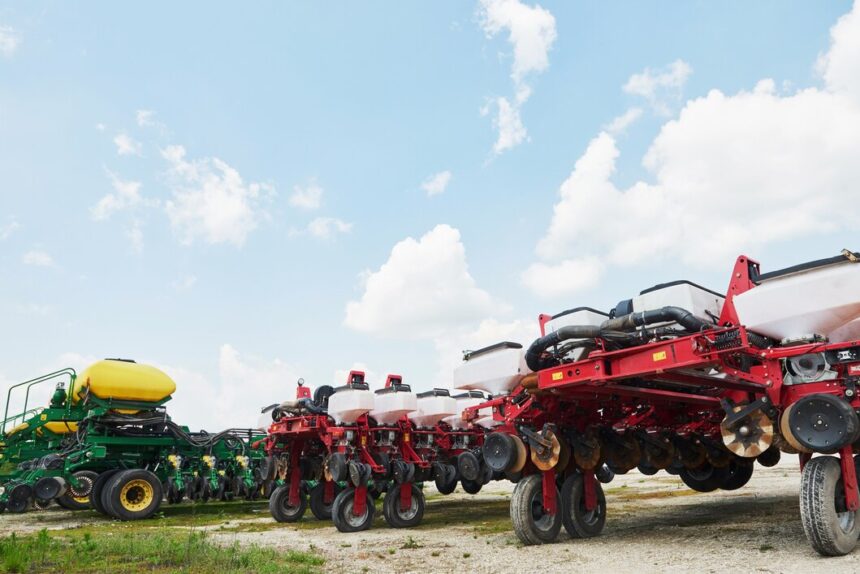Farmers in South Africa face unique challenges, from unpredictable weather patterns to fluctuating market conditions. Optimizing farm equipment use is essential for increasing productivity, reducing costs, and ensuring sustainability. Here’s a guide for farmers looking to make the most out of their machinery.
1. Regular Maintenance Is Key
Routine maintenance is the backbone of efficient equipment use. Ensure that all farm machinery, whether tractors, planters, or harvesters, is inspected regularly. This helps to:
- Prevent breakdowns during critical periods like planting or harvesting.
- Extend the lifespan of equipment.
- Minimize repair costs by catching issues early.
Tip: Develop a maintenance schedule that includes checking oil levels, tires, filters, and electrical systems. Regularly lubricate moving parts to reduce wear and tear.
2. Proper Training for Operators
Even the most advanced equipment can be inefficient if not operated correctly. Invest in training programs to ensure that all workers understand how to use the equipment safely and effectively. Trained operators can:
- Maximize fuel efficiency.
- Operate machinery at optimal speeds for different tasks.
- Reduce the likelihood of accidents that can damage equipment and halt production.
Tip: Schedule refresher training sessions annually to keep your team up-to-date with the latest best practices.
3. Leverage Technology
Modern farm equipment often comes with integrated technology designed to improve efficiency. GPS systems, auto-steering mechanisms, and yield monitors can enhance operations by:
- Ensuring accurate planting and reducing seed waste.
- Monitoring and adjusting equipment settings in real-time to optimize performance.
- Providing data analytics to inform future decision-making.
Tip: Consider upgrading older equipment with technology add-ons if new machinery isn’t within budget.
4. Choose the Right Equipment for the Job
Overworking or underutilizing machinery can lead to inefficiencies. Ensure you are using equipment that matches the scale of the task at hand. For example:
- Large-scale farms may benefit from high-capacity tractors and harvesters that can cover more ground quickly.
- Small to medium-scale operations might be more cost-effective with compact, versatile equipment that can perform multiple functions.
Tip: Consult with an agricultural expert or equipment dealer to assess the best machinery for your farm size and crops.
5. Fuel Management
With fuel prices constantly rising, efficient fuel management can lead to significant cost savings. Here’s how to manage fuel use:
- Operate machinery at optimal speeds to reduce fuel consumption.
- Plan field operations to minimize unnecessary trips and overlapping.
- Maintain tire pressure as under-inflated tires increase fuel usage.
Tip: Invest in fuel monitoring systems that track consumption and identify areas where fuel savings can be made.
6. Plan for Off-Season Storage
Proper storage of farm equipment during the off-season helps prevent deterioration. Protecting your machinery from the elements can:
- Prevent rust and other weather-related damage.
- Ensure that engines and other components remain in good working condition.
- Reduce start-up issues when the next farming season begins.
Tip: Clean equipment thoroughly before storage and consider covering it or storing it in a sheltered space to limit exposure to sun, rain, and dust.
7. Adopt Preventative Maintenance Strategies
Beyond routine checks, preventative maintenance can include practices like:
- Seasonal checks before high-usage periods.
- Regularly updating software on technologically advanced equipment.
- Keeping spare parts on hand for quick repairs.
Tip: Collaborate with equipment manufacturers for guidance on preventative measures and replacement part recommendations.
8. Collaboration and Sharing Resources
For farmers with budget constraints, sharing equipment with neighboring farms can be a cost-effective way to access machinery that may be too expensive to purchase outright. Cooperative farming or equipment rental services can:
- Lower capital expenditure on new machinery.
- Ensure that equipment is used efficiently throughout its lifecycle.
Tip: Establish agreements that outline responsibilities, usage schedules, and maintenance protocols to avoid disputes.
The efficient use of farm equipment is not just about maintaining the machinery but also about strategic planning, embracing innovation, and training. By following these practices, South African farmers can boost productivity, cut operational costs, and enhance the longevity of their valuable equipment assets. Sustainable and efficient equipment use is not just beneficial for individual farmers but strengthens the entire agricultural sector, contributing to the overall food security of the nation.
Join 'Farmers Mag' WhatsApp Channel
Get the latest Farming news and tips delivered straight to your WhatsApp
CLICK HERE TO JOIN






